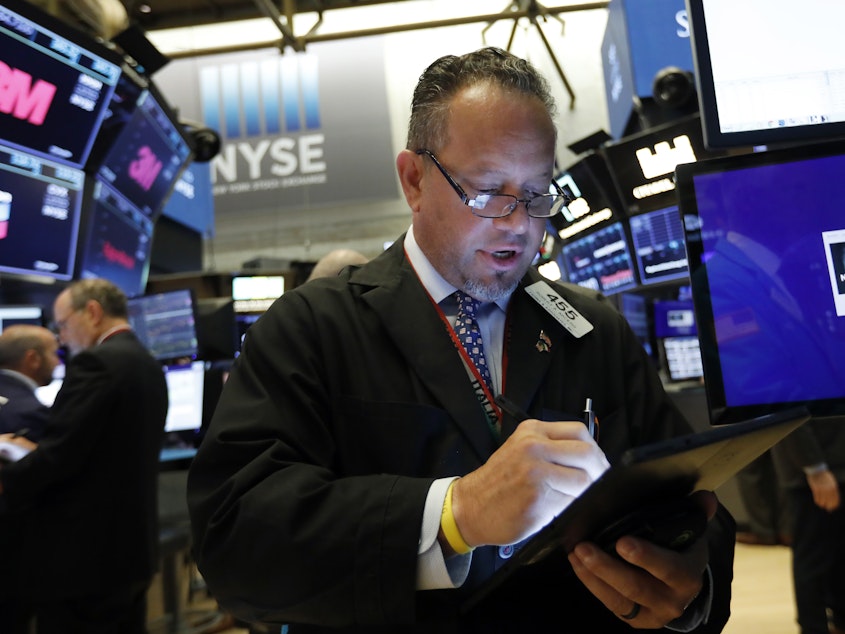Deepening Fears About The Global Economy Send Stocks Falling Again

Stocks resumed their slide downward Wednesday, amid escalating fears that the U.S.-China trade war will further damage a worldwide economy that's already slowing.
Policymakers in India and Thailand cut interest rates to stimulate growth, suggesting they are growing more worried about the global economy.
Central bankers in New Zealand cut rates by a half percentage point — an aggressive move that took a lot of investors by surprise because the country's economy has generally been seen as solid, says Quincy Krosby, chief market strategist at Prudential Financial. Last week, the Federal Reserve cut U.S. rates for the first time since 2008.
In the United States, the Dow Jones Industrial Average fell by more than 500 points shortly after the market opened Wednesday, though it later recovered somewhat. And a key interest rate on U.S. government debt weakened. As stocks fall, investors typically pour money into safe assets such as government debt, pushing rates lower.
"Much of what we're seeing is this fear of an overall global economic slowdown. And then the tariff issue exacerbates that," Krosby said.
Sponsored
The S&P 500 index has fallen about 5% since Thursday, when President Trump announced that he was raising tariffs on $300 billion worth of Chinese imports.
Stocks declined further on Monday after China allowed its currency, the yuan, to fall below the psychologically important barrier of 7 yuan per dollar.
Such a move undercuts the U.S. tariffs because it makes Chinese products cheaper for U.S. consumers to buy.
The escalating trade war between the world's largest economies threatens to have a spillover effect in other countries.
China in particular is an engine of growth throughout Asia, and any slowdown there can quickly spread throughout the region.
Sponsored
Countries such as Japan and Germany now sell government bonds bearing negative rates. That essentially means investors lose money just for the privilege of parking their cash in what are considered safe assets. [Copyright 2019 NPR]



